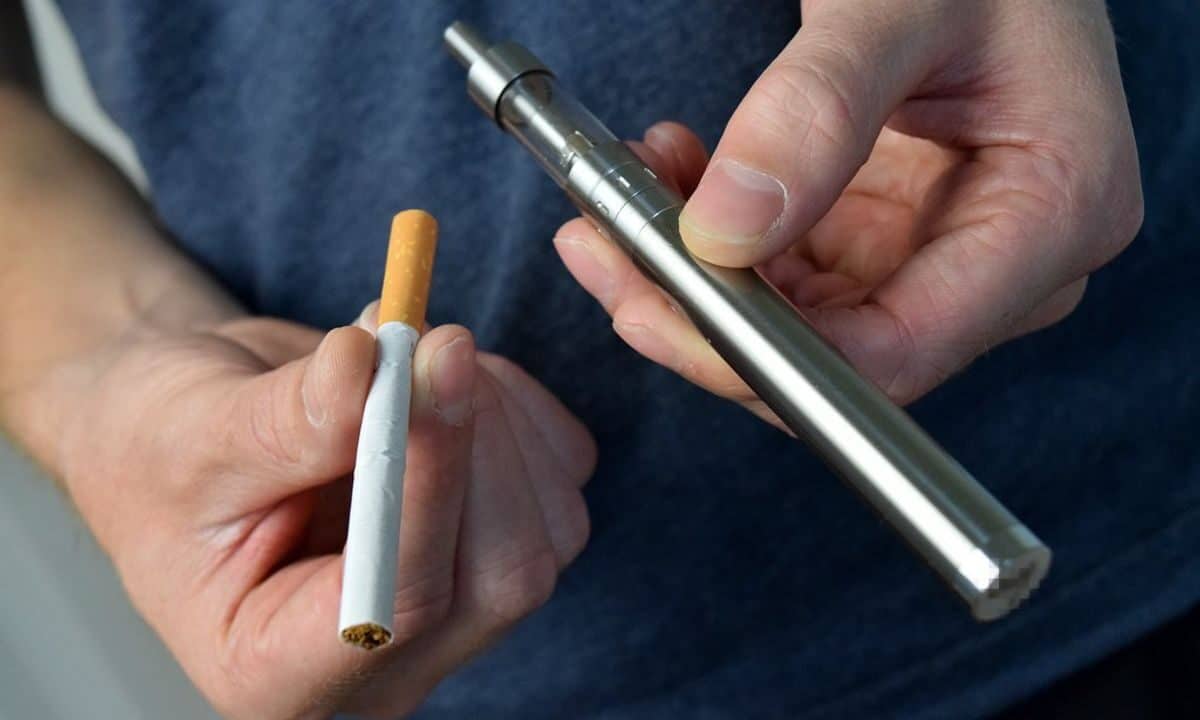 Vaping Vs. Smoking by Vaping360 is licensed under CC BY 2.0
Vaping Vs. Smoking by Vaping360 is licensed under CC BY 2.0
E-cigarettes have long been shown to be the most effective way of helping people quit smoking, but their ability to facilitate cessation in ambivalent smokers with no plans to quit smoking has been largely unknown. A team of researchers from the Society for Research on Nicotine and Tobacco sought an answer to this question.
In the study, which was published in the Oxford University Press, current adult smokers without plans to quit smoking were randomly separated into four groups. Participants were given either an e-cigarette with 0 mg, 8 mg, or 36 mg/ml nicotine e-liquid or a cigarette-shaped tube. Results of smoking cessation were recorded after 24 weeks.
The researcher’s findings show that at the end of 24 weeks, the greater the nicotine content of the e-cigarette, the greater the cessation rate. The key findings of the study are presented below, and the full study can be found here.
Key Findings:
- Significantly more participants in the high nicotine content group quit than any of the low content groups.
- 1% of the 0 mg/ml, 4.6% of the 8 mg/ml, 11% of the 36 mg/ml, and 3.1% of the cigarette substitute groups were abstinent.
- As smokers continued to use an ENDS with cigarette-like nicotine delivery, a greater proportion completely switched to ENDS.
- “ENDS with nicotine delivery approaching that of a cigarette are more effective in helping ambivalent smokers to quit cigarette smoking.”
Previous studies have shown e-cigarettes to be 95% less harmful than traditional cigarettes and at least twice as effective in helping smokers quit than other forms of nicotine replacement. This study reinforces the understanding of harm reduction activists and public health officials across the world that e-cigarettes are the most effective tool for smoking cessation. Further, it shows that e-cigarettes can even help smokers without plans to quit smoking drop the habit. The knowledge that e-cigarettes are not only safer than cigarettes, but are also the most successful cessation tool, even helping ambivalent smokers quit, adds further fuel to the fire surrounding the unsubstantiated vaping product prohibition. According to Georgetown University, up to 6.6 million lives could be saved if smokers switched to vaping. The FDA’s decision on Juul flies in the face of this finding. Instead of attempting to remove the largest e-cigarette manufacturer from the market, the FDA should encourage the use of e-cigarettes as a tool for quitting smoking.

